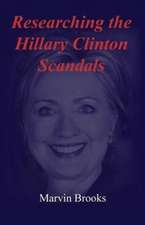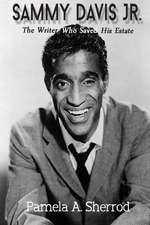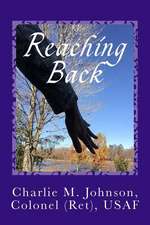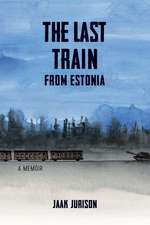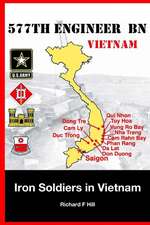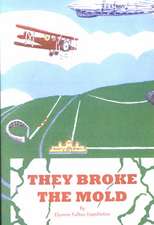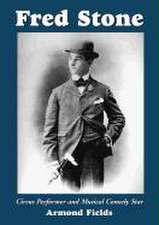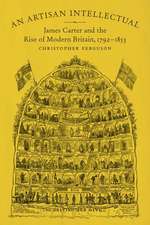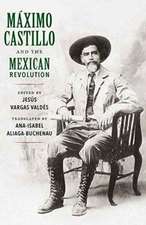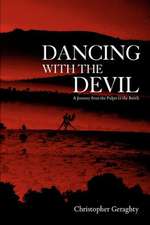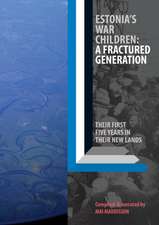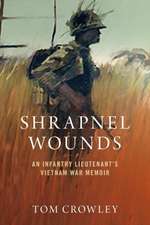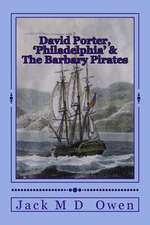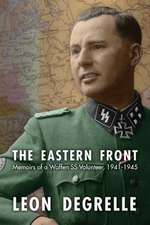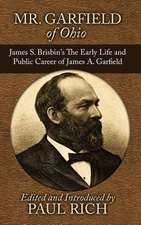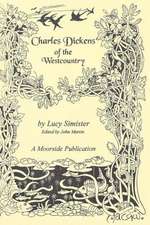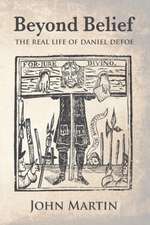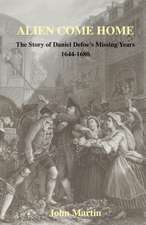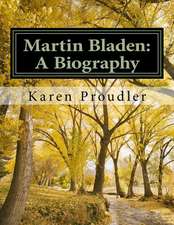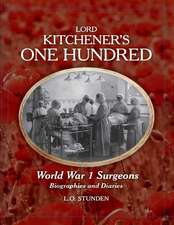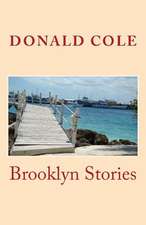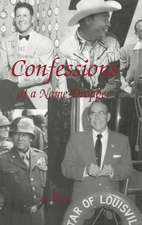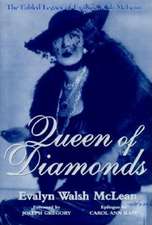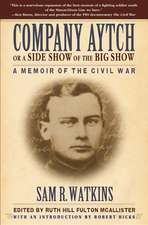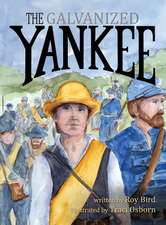The Better Brother: Tom & George Custer and the Battle for the American West
Autor Roy Birden Limba Engleză Hardback
Author Roy Bird takes us inside the circle of Tom and Autie, whose close-knit relationship and intense rivalry in hunting, military skills, business, and even romance would span from their boyhood farm in Ohio to their heroic end at the Battle of Little Bighorn, where they were, as always, together. Bird's The Better Brother is not only
the story of two brothers whose incredible talents and healthy rivalry drove each other to greatness, but also a story at the center of American history.
| Toate formatele și edițiile | Preț | Express |
|---|---|---|
| Paperback (1) | 127.86 lei 3-5 săpt. | |
| Turner Publishing Company – 30 iun 2011 | 127.86 lei 3-5 săpt. | |
| Hardback (1) | 252.92 lei 3-5 săpt. | |
| Turner – | 252.92 lei 3-5 săpt. |
Preț: 252.92 lei
Nou
Puncte Express: 379
Preț estimativ în valută:
48.40€ • 50.00$ • 40.28£
48.40€ • 50.00$ • 40.28£
Carte disponibilă
Livrare economică 04-18 martie
Preluare comenzi: 021 569.72.76
Specificații
Cuprins
Introduction xi
1. The Formative Years 1
2. Military Life 18
3. Intermission and Introspection 39
4. Into Kansas and Back to the Service 58
5. Back on Campaign Again 77
6. The Winter Campaign 97
7. The End of the Winter Campaign and Kindred Matters 115
Image Section 131
8. Is It True What They Say? 135
9. A Shootout in Hays City 153
10. Reconstructing Erring Sisters 167
11. Return to the Plains 179
12. A Warrior Angered 194
13. The Last Campaign 209
14. The Last Battle 227
Conclusion 243
Afterword 252
Notes 255
Bibliography 275
Index 285
1. The Formative Years 1
2. Military Life 18
3. Intermission and Introspection 39
4. Into Kansas and Back to the Service 58
5. Back on Campaign Again 77
6. The Winter Campaign 97
7. The End of the Winter Campaign and Kindred Matters 115
Image Section 131
8. Is It True What They Say? 135
9. A Shootout in Hays City 153
10. Reconstructing Erring Sisters 167
11. Return to the Plains 179
12. A Warrior Angered 194
13. The Last Campaign 209
14. The Last Battle 227
Conclusion 243
Afterword 252
Notes 255
Bibliography 275
Index 285
Recenzii
“In THE BETTER BROTHER, Kansas-based historian Roy Bird draws on years of research to bring Tom Custer to the forefront… Fascinating.” —Wild West magazine
Notă biografică
Historian, fiction writer, professor, and longtime Custer researcher Roy Bird was born in Herington, Kansas. A graduate of Kansas State University and Emporia State University, he has written or edited more than a dozen books and over two hundred articles and short stories about Kansas and the American West. Roy is on the adjunct faculty at Washburn University. He and his family live on a farm near Auburn, Kansas.
Extras
Tom was only sixteen years old when the war erupted in 1861. President Lincoln’s first call for 75,000 volunteers to fill the ranks of a small regular army included some boys his age, but like many other Americans, Tom’s father believed the fighting would be of short duration, so Tom was kept at home in Monroe.
That did not prevent him from hearing glowing details of the army from Autie. Although he graduated last in his class at West Point with so many demerits that if the war had not broken out when it did he might never have received a commission at all, Tom’s brother became a second lieutenant in the Second United States Cavalry regiment.2 On a visit to Monroe in 1861, while he was on leave before joining his regiment, Autie really cut a dash in his cavalry uniform. He made a big impression on petite little Elizabeth Bacon. He also stirred up a hornet’s nest when he commenced courting her, for shortly after he began in earnest, he was seen tramping down Monroe Street, boisterously intoxicated—a matter which drew the attention of both Libbie’s father and his
own older sister, Lydia Reed.
Tom sniggered behind his brother’s back after he heard what Lydia did when it happened. Being a strict matriarchal figure, not to mention being firmly opposed to the use of alcohol, she was so disconcerted about the incident that there and then she extracted a promise from George, on his word of honor as an officer and a
gentleman, that he would never drink another drop of intoxicating liquor. Oddly enough, he never did after that day. That submission not only soothed Lydia but also helped to clear the way with the honorable Judge Bacon for George to court Libbie seriously.
But not for long. Tom and Libbie were each sorry to see George step onto the train that would carry him out of Monroe and their lives and into the first major battle of the war at Bull Run. Autie left his loved ones already a hero in their eyes. Tom was probably the only one watching him leave who understood that Autie noted the characteristics that people expected of a hero and cultivated that image. George possessed all the qualities of greatness admired by nineteenth-century Americans, and during the next few years he would use them to best advantage. He was faced with social and economic barriers to success, but in classic Horatio Alger style he overcame these walls, believing that individualism was the most important part of his own abilities. He mastered his environment and other men through his domineering will. No one, not even Tom, stood impervious to his authority.
That did not prevent him from hearing glowing details of the army from Autie. Although he graduated last in his class at West Point with so many demerits that if the war had not broken out when it did he might never have received a commission at all, Tom’s brother became a second lieutenant in the Second United States Cavalry regiment.2 On a visit to Monroe in 1861, while he was on leave before joining his regiment, Autie really cut a dash in his cavalry uniform. He made a big impression on petite little Elizabeth Bacon. He also stirred up a hornet’s nest when he commenced courting her, for shortly after he began in earnest, he was seen tramping down Monroe Street, boisterously intoxicated—a matter which drew the attention of both Libbie’s father and his
own older sister, Lydia Reed.
Tom sniggered behind his brother’s back after he heard what Lydia did when it happened. Being a strict matriarchal figure, not to mention being firmly opposed to the use of alcohol, she was so disconcerted about the incident that there and then she extracted a promise from George, on his word of honor as an officer and a
gentleman, that he would never drink another drop of intoxicating liquor. Oddly enough, he never did after that day. That submission not only soothed Lydia but also helped to clear the way with the honorable Judge Bacon for George to court Libbie seriously.
But not for long. Tom and Libbie were each sorry to see George step onto the train that would carry him out of Monroe and their lives and into the first major battle of the war at Bull Run. Autie left his loved ones already a hero in their eyes. Tom was probably the only one watching him leave who understood that Autie noted the characteristics that people expected of a hero and cultivated that image. George possessed all the qualities of greatness admired by nineteenth-century Americans, and during the next few years he would use them to best advantage. He was faced with social and economic barriers to success, but in classic Horatio Alger style he overcame these walls, believing that individualism was the most important part of his own abilities. He mastered his environment and other men through his domineering will. No one, not even Tom, stood impervious to his authority.
Textul de pe ultima copertă
Years of painstaking research have uncovered more detail on Thomas Ward Custer, the younger brother of the legendary General George Custer. Historians are now coming to understand the full influence of Tom Custer on his brother and American life, from his heroic exploits during the Civil War to his legendary bravery during the Indian Wars, where he served under his brother as his aide-de-camp. Had Tom not been overshadowed by his more famous brother, he might well have become one of the more notable characters and military officers of the American West. Despite winning two Congressional Medals of Honor, his legendary feud with Rain-in-the-Face, the shooting scrape with “Wild Bill” Hickok, and many other fearsome exploits, Tom has taken a backseat to George in the American imagination. Only recently has his influence on the history of the United States become fully understood and appreciated by scholars.
Author Roy Bird takes us inside the circle of Tom and Autie, whose close-knit relationship and intense rivalry in hunting, military skills, business, and even romance would span from their boyhood farm in Ohio to their heroic end at the Battle of Little Bighorn, where they were, as always, together. Bird’s The Better Brother is not only
the story of two brothers whose incredible talents and healthy rivalry drove each other to greatness, but also a story at the center of American history.
Author Roy Bird takes us inside the circle of Tom and Autie, whose close-knit relationship and intense rivalry in hunting, military skills, business, and even romance would span from their boyhood farm in Ohio to their heroic end at the Battle of Little Bighorn, where they were, as always, together. Bird’s The Better Brother is not only
the story of two brothers whose incredible talents and healthy rivalry drove each other to greatness, but also a story at the center of American history.
Descriere
Descriere de la o altă ediție sau format:
Years of painstaking research have uncovered more detail on Thomas Ward Custer, the younger brother of the legendary General George Custer. Historians are now coming to understand the full influence of Tom Custer on his brother and American life, from his heroic exploits during the Civil War to his legendary bravery during the Indian Wars, where he served under his brother as his aide-de-camp. Had Tom not been overshadowed by his more famous brother, he might well have become one of the more notable characters and military officers of the American West. Despite winning two Congressional Medals of Honor, his legendary feud with Rain-in-the-Face, the shooting scrape with “Wild Bill” Hickok, and many other fearsome exploits, Tom has taken a backseat to George in the American imagination. Only recently has his influence on the history of the United States become fully understood and appreciated by scholars.
Author Roy Bird takes us inside the circle of Tom and Autie, whose close-knit relationship and intense rivalry in hunting, military skills, business, and even romance would span from their boyhood farm in Ohio to their heroic end at the Battle of Little Bighorn, where they were, as always, together. Bird’s The Better Brother is not only
the story of two brothers whose incredible talents and healthy rivalry drove each other to greatness, but also a story at the center of American history.
Author Roy Bird takes us inside the circle of Tom and Autie, whose close-knit relationship and intense rivalry in hunting, military skills, business, and even romance would span from their boyhood farm in Ohio to their heroic end at the Battle of Little Bighorn, where they were, as always, together. Bird’s The Better Brother is not only
the story of two brothers whose incredible talents and healthy rivalry drove each other to greatness, but also a story at the center of American history.

